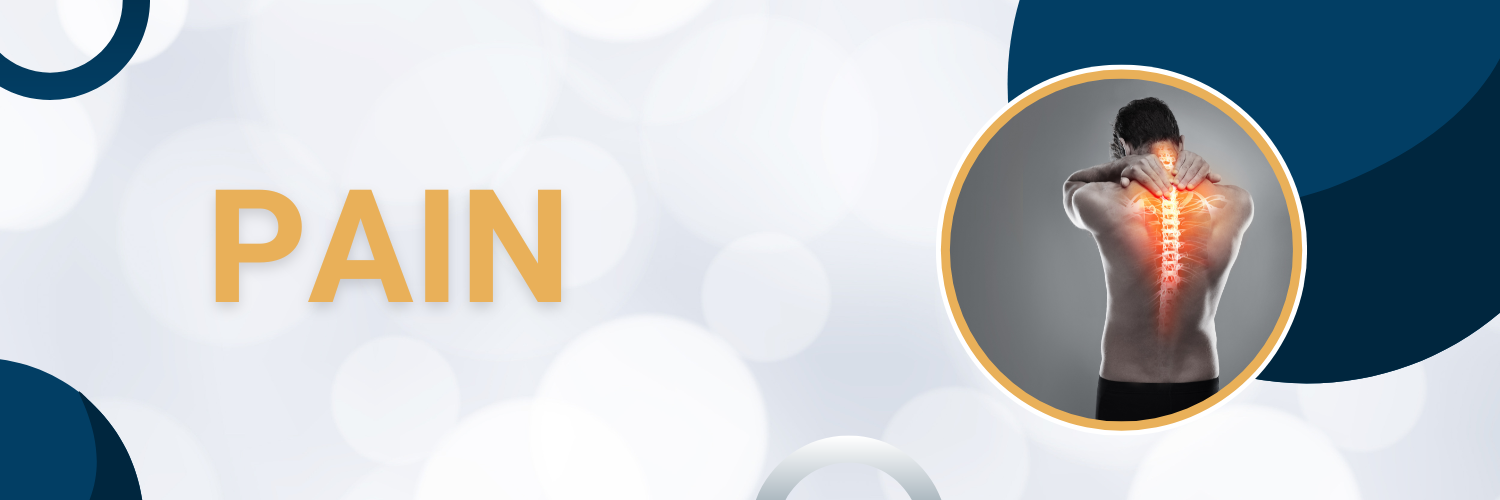

Radiating Pains
Understanding Radiating Pains: Causes, Symptoms, and Treatment
Introduction:
Radiating pains can be distressing and often indicate an underlying health issue. Understanding the causes, symptoms, and treatment options for radiating pains is essential for proper management and relief. This comprehensive guide aims to provide insights into radiating pains, helping individuals recognize and address them effectively.
What Are Radiating Pains?
Radiating pains refer to discomfort or sensations that extend from one area of the body to another. These pains typically originate from a specific source, such as a nerve, muscle, or organ, and then travel along nerve pathways to distant regions. The sensation may vary from tingling and numbness to sharp, shooting pains.
Causes of Radiating Pains:
1. Nerve Compression or Injury: Conditions like herniated discs, spinal stenosis, or sciatica can compress or irritate nerves, leading to radiating pain along the affected nerve pathway.
2. Muscle Strain or Injury: Muscle strain or injury, particularly in the back or neck, can cause radiating pains as the muscles tighten and compress nearby nerves.
3. Joint Disorders: Conditions such as osteoarthritis or rheumatoid arthritis can cause inflammation and damage to joints, resulting in radiating pains in surrounding areas.
4. Trauma or Injury: Accidents or trauma, such as whiplash injuries, fractures, or dislocations, can cause radiating pains due to nerve or tissue damage.
5. Infections: Certain infections, such as shingles or Lyme disease, can affect nerves and cause radiating pains along specific nerve pathways.
6. Chronic Conditions: Chronic conditions like fibromyalgia or diabetic neuropathy can lead to persistent radiating pains as a result of nerve damage or dysfunction.
7. Tumors: Tumors pressing on nerves or surrounding tissues can cause radiating pains, often accompanied by other symptoms like weakness or numbness.
Symptoms of Radiating Pains:
– Sharp, shooting pains
– Tingling or numbness
– Burning sensations
– Weakness or loss of muscle control
– Difficulty moving affected body parts
– Increased pain with certain movements or activities
– Radiating pain that follows a specific nerve pathway
Diagnosis:
Diagnosing the underlying cause of radiating pains typically involves a thorough medical history, physical examination, and may require imaging tests such as X-rays, MRI, or CT scans. Additionally, nerve conduction studies or electromyography (EMG) may be performed to assess nerve function.
Treatment Options:
1. Pain Management: Over-the-counter or prescription pain medications may help alleviate discomfort associated with radiating pains. Nonsteroidal anti-inflammatory drugs (NSAIDs) can reduce inflammation, while muscle relaxants may help relieve muscle spasms.
2. Physical Therapy: Physical therapy exercises and techniques can improve strength, flexibility, and posture, reducing pressure on nerves and alleviating radiating pains.
3. Injections: Epidural steroid injections or nerve blocks may be recommended to deliver anti-inflammatory medication directly to the affected area, providing temporary relief from radiating pains.
4. Surgery: In cases where conservative treatments fail to provide relief, surgical intervention may be necessary to address underlying structural issues, such as herniated discs or spinal stenosis.
5. Alternative Therapies: Techniques such as acupuncture, chiropractic care, or massage therapy may help alleviate radiating pains by promoting relaxation, improving circulation, and reducing muscle tension.
Conclusion:
Radiating pains can significantly impact quality of life, but proper diagnosis and treatment can help manage symptoms effectively. It’s essential to consult with a healthcare professional for an accurate diagnosis and personalized treatment plan tailored to individual needs. By addressing the underlying cause of radiating pains and implementing appropriate interventions, individuals can experience relief and improve their overall well-being.

